I do not think that anyone believes that children are machines, but the analogies people use to understand how children learn and consequently, how one should teach children are often based on children’s minds being like a computer.
Minds do not store information
When we experience the world, our minds are changed in response to our experiences, slowly, gradually, over time. We build pathways in our brains so that we can re-experience the world and in doing so, build responses for the next time we are faced with a similar experience.
Our brains have, through the process of evolution, developed the habit of keeping experiences that we revisit frequently and over time, and trimming neural connections corresponding to the less frequent (and from an evolutionary stand-point, less useful) experiences. We call this process forgetting but it is worth knowing that it happens quickly — within an hour of experiencing something we can no longer re-experience most of what we experienced (eg. we’ve forgotten it).
One might say that our brains store representations of what we have experienced, but unlike a computer hard drive, these stored representations change over time. Also, these representations are generally highly inaccurate, relative to the actual objects themselves.
Try drawing, in as much detail as you can without looking at the object, some common fruit from where you live. You’ll invariably find that what you can reproduce without looking at the object is far less detailed than the object itself. Our brains, at best, store sufficient detail (as encoded in neural pathways that allow us to “re-experience” seeing the object) to be able to recognize that object again in the future.
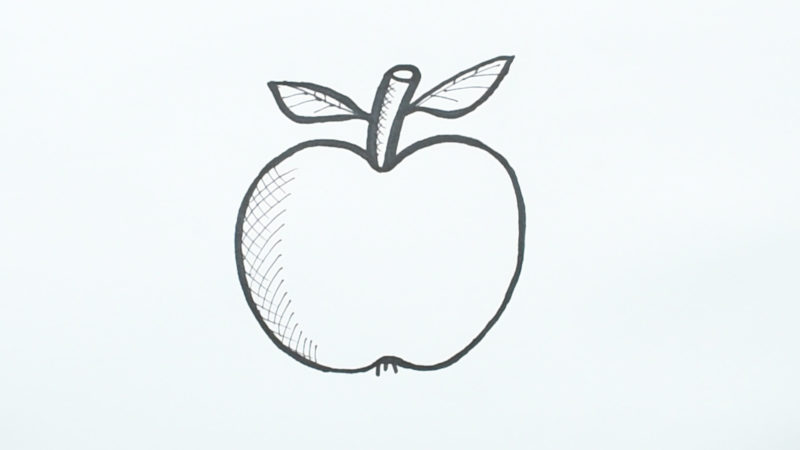
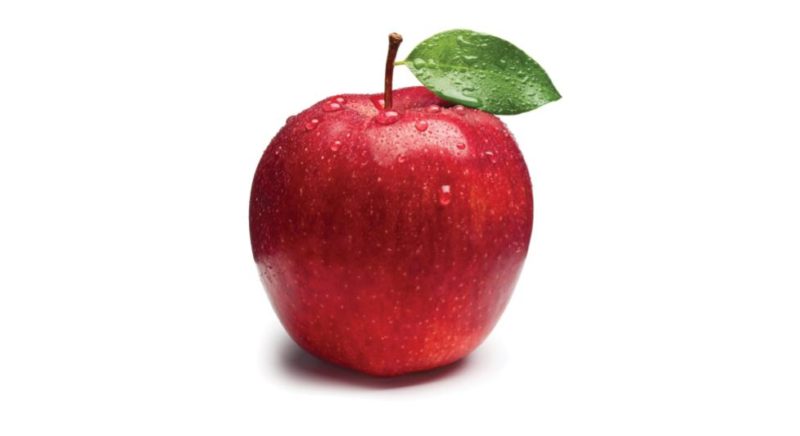
At best we store experiences of objects in our head that are minimally sufficient to be able to recognize those objects in the future. It is possible that even with increased exposure to these objects, our internal representations may never become more accurate.
Learning is not performance
Several years ago, I taught a Saturday class that contained my son and about 8 of his homeschool friends. The goals of that particular day were to develop students’ ability to recognize that fractions are numbers, that fractions can be represented on a number line, and that we can use the number line to look for equivalence between fractions.
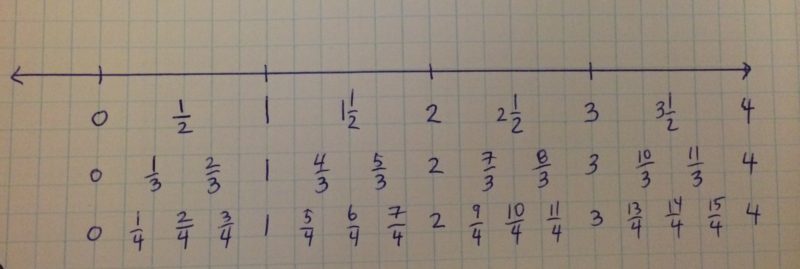
Toward the end of the lesson, when asked what fractions 3/4 is equivalent to, my son told me, “One third because the 3 in the denominator tells you how many quarters there are.” It seemed clear that he had not learned what was intended by the lesson. (An aside: how could what my son said make sense, given his limited experience with fractions?)
However, I chose at that time to do nothing and basically wait. Two weeks later, with no intervening mathematics lessons from me, I asked him again, “Is 1/3 equivalent to 3/4?” and my son responded, “No, there’s no way! 1/3 is less than 1/2 and 3/4 is more than 1/2 so they can’t possibly be the same!”
Minds forget things
I have often heard teachers complain that students appear to have never learned some critical prerequisite idea from an earlier teacher. “Why don’t those elementary school teachers drill the times tables better! These kids don’t know their times tables.”
But there is a simpler hypothesis; children did experience those ideas with an earlier teacher but have since forgotten them. Or alternatively, children have trouble retrieving the ideas and rebuilding their experience of those ideas because of the delay in time between when children first experienced the idea and when they need it later. Much work is done with children to have them review and re-experience ideas they have experienced that might be better spent asking children to retrieve and relive those experiences instead.
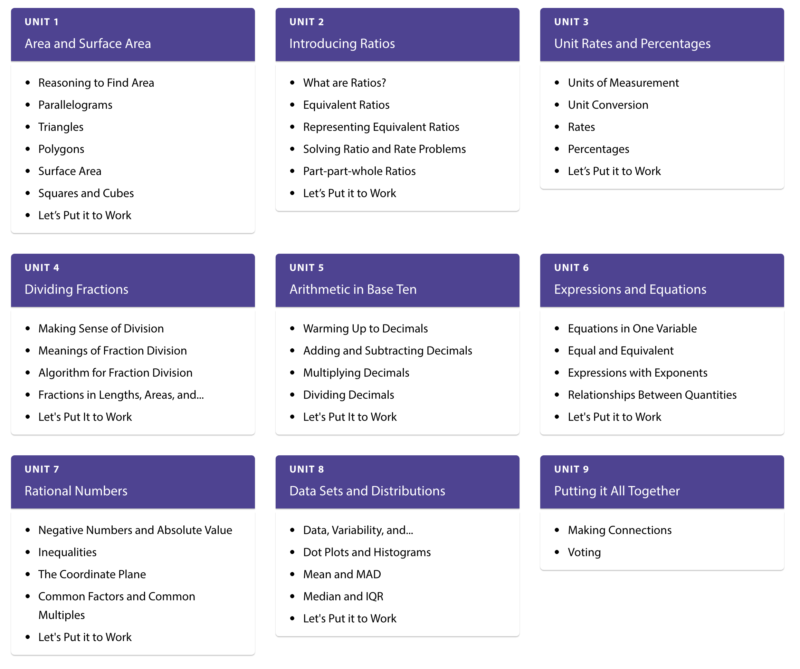
If we want students to remember everything that was experienced, then we need to include time for students to practice, rehearse, relive, retrieve, and build connections between what is currently being experienced to what was experienced in the past. The Illustrative Mathematics curriculum that is referenced in the image above does this by building in practice problems for each unit that reference ideas from earlier units.
Memories are personal and change over time
A very long time ago, I remember being in middle school and listening to a girl describe why she fixed her hair the way she did. I obnoxiously retorted that her head was the only place she had hair. With my two friends present, she flashed me to prove to me she had hair elsewhere. Years later, I recounted this story to my friends and discovered that each of them believed they had made the obnoxious comment and were the one flashed.
Our memories not only change over time but how we re-experience events depends on what experiences we had before those events.
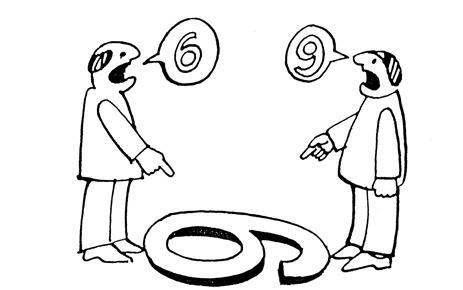
While children are experiencing ideas, it behooves us to listen to what they experienced from their perspective and how they attempt to connect it to their prior experiences. We have greater expertise and experience with the mathematical ideas than do our students, so consequently, the mathematical connections we make will be different.
Learning is long term change
A goal of teaching is not to change what students do or know for tomorrow but ideally what they know and can do for the rest of their lives. Consequently, teachers should be more interested in long-term changes in what students know and can do than short-term performances.
Reviewing the material children should have learned from a unit helps those children increase their performance on the assessment tomorrow but may hamper their ability to recall those experiences in the long term. Reviewing the material children should have learned from the past school year for three weeks before their final assessment might improve students’ performance on that assessment (although it probably doesn’t, given the scale of how quickly our minds forget experiences) but it definitely does nothing to support children in taking those experiences with them for the rest of their lives.
Instead of cramming all of the ideas for the year into a short unit at the end of the year, build opportunities for students to retrieve ideas from previous lessons regularly into every lesson. Instead of telling kids what they should have learned the day before an assessment, use structured retrieval practice with embedded feedback (two of my favourite sources of this kind of structured practice are instructional routines and these formative assessment lessons).
Children are not machines
Unlike machines, children do not store literal copies of what they experience. Unlike machines, children’s memories of those experiences degrade over time. Unlike machines, children benefit little from re-experiencing ideas and benefit greatly from actively re-living experiences from their memories. Unlike machines, what children remember from experiences is personally and highly dependent on what children had experienced earlier in their lives. Unlike machines, children take a long time to change — we can’t just install new software in children to change what they can do.
Tom says:
Good article. Well presented and argued.
June 3, 2019 — 1:39 am
Dave Reesor says:
Interesting take- I encourage the use of data, or research- share your sources. You must have these insights based on readings as well as your musings from experience (I expect)
August 7, 2019 — 2:11 pm
David Wees says:
That’s a fair point, Dave. I did share one pretty significant source above on retrieval practice: http://retrievalpractice.org.
I suspect that Make It Stick and the work of Elizabeth and Robert Bjork are part of my sources, aside from my own experiences.
The idea of learning is long term change and not simply a one-off performance is well established across many researchers, so I don’t know if that needs a source.
I’ll see if I can hunt down some sources for what I posted here and add a references section. Thank you for the suggestion.
August 7, 2019 — 3:11 pm